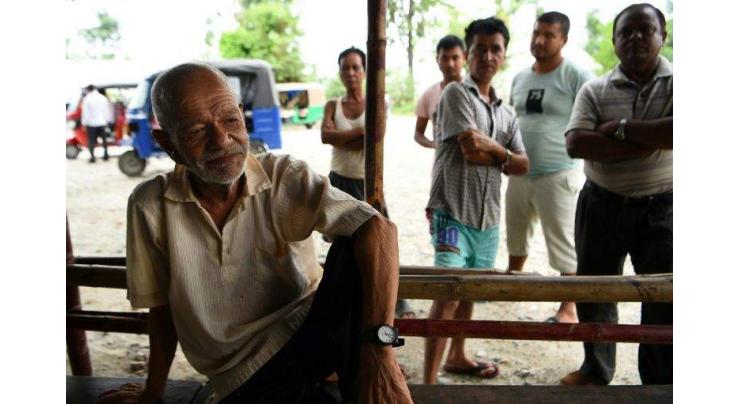
Bhutan's Not-so-happy Evicted Minority, The Lhotshampa
Umer Jamshaid Published October 15, 2018 | 12:08 PM

The Himalayan nation of Bhutan, often described as a "Shangri-La" where happiness is equated to wealth, is holding elections this week. But the Lhotshampa people, brutally driven out of the small kingdom in the 1990s, won't be voting.
Beldangi refugee camp, Nepal, (APP - UrduPoint / Pakistan Point News - 15th Oct, 2018 ) :The Himalayan nation of Bhutan, often described as a "Shangri-La" where happiness is equated to wealth, is holding elections this week. But the Lhotshampa people, brutally driven out of the small kingdom in the 1990s, won't be voting.
The Nepali-speaking Lhotshampa were branded as immigrants and stripped of citizenship rights when the then-king introduced a "One Nation, One People" policy in 1985.
The edict made following the customs of the Buddhist majority mandatory, including wearing their traditional dress, and speaking Nepali was banned.
Those who resisted where labelled "anti-nationals", arrested and subjected to brutal treatment including rape and torture, according to Amnesty International.
The security forces made detainees sign declarations saying they would leave Bhutan voluntarily as a condition of their release.
Some 100,000 -- one sixth of Bhutan's population -- fled, ending up in refugee camps in eastern Nepal.
One man who left Bhutan is Bhumpa Rai, who was serving as a royal doctor when the king's edict was promulgated.
"They humiliated us... they said that we are not Bhutanese and chased me and my people from the country," Rai told AFP.
The king offered him protection from the Draconian rules, introduced under the pretext of promoting "national harmony".
But the doctor decided to join his fellow Lhotshampa and left Bhutan, becoming a refugee in Nepal.
"They treated people of Nepali origin like enemies. I cannot respect them any more, though I admit that I used to clean their wounds. I was their doctor," the 68-year-old said.
Rai is one of just 7,000 people who remain in the camps in Nepal. The majority have been resettled by the United Nations in third countries including the United States, Australia and Norway.
But the UN programme ended in late 2016 with those remaining refusing resettlement because they say it absolves the Bhutanese authorities of what they did to the Lhotshampa.
Related Topics
Recent Stories

PTI to stage nationwide protests against alleged electoral frauds

Senate continues discussion on Presidential address to Joint Sitting of Parliame ..

Masood Khan calls for Pak-US cooperation for regional peace

Interior Minister starts Margalla Trail Patrol for security

Currency Rate In Pakistan - Dollar, Euro, Pound, Riyal Rates On 26 April 2024

Today Gold Rate in Pakistan 26 April 2024

ICC Womens T20 World Cup Qualifier, Match 2: Ireland Women open with Comfortable ..

Robinson, bowlers help New Zealand go 2-1 up against Pakistan

Shahzeb Chachar to hold khuli kachehri on April 26

Heatwave amid Israel's aggression in Gaza brings new misery, disease risk

Tourism must change, mayor says as Venice launches entry fee

Court adjourns Judicial Complex attack case till May 17
More Stories From World
-
Golf: PGA Zurich Classic of New Orleans scores
7 minutes ago -
Cybersecurity firm Darktrace accepts $5 bn takeover
27 minutes ago -
Clean energy drives massive BHP takeover bid
57 minutes ago -
Copper price tops $10,000 for first time in two years
1 hour ago -
Ukraine agriculture minister held for alleged corruption
1 hour ago -
China calls Germany spy claims 'pure fabrication'
2 hours ago
-
Singapore expects 1-3 pct growth this year
2 hours ago -
Hong Kong's Hang Seng Tech Index rises over 5 pct
2 hours ago -
New Zealand business sector R&D expenditure hits 2.21 bln USD
2 hours ago -
3 dead after mini car falls into west Japan paddy field
2 hours ago -
Chinese shares higher at midday Friday
2 hours ago -
Myanmar plans to export 2,000 tons of coffee in 2024-25 fiscal year
2 hours ago